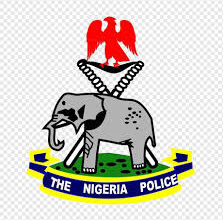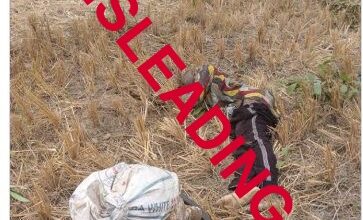Fact-check: Baltasar Engonga Has NOT Been Released, Viral Video and Picture Are Misleading

BY: Toheeb Babalola
CLAIM:
The viral video and image circulating on social media, claiming that Baltasar Ebang Engonga, former head of Equatorial Guinea’s National Financial Investigation Agency, had been released from prison, were “Misleading”.
On Thursday, November 21st, at exactly 23:10 WAT, a Nigerian influencer posted eleven seconds with the caption, “BREAKING: Baltasar Engonga from Equatorial Guinea has been released and is now back with his family” on X (formerly Twitter), which received 379 retweets and 164 comments.
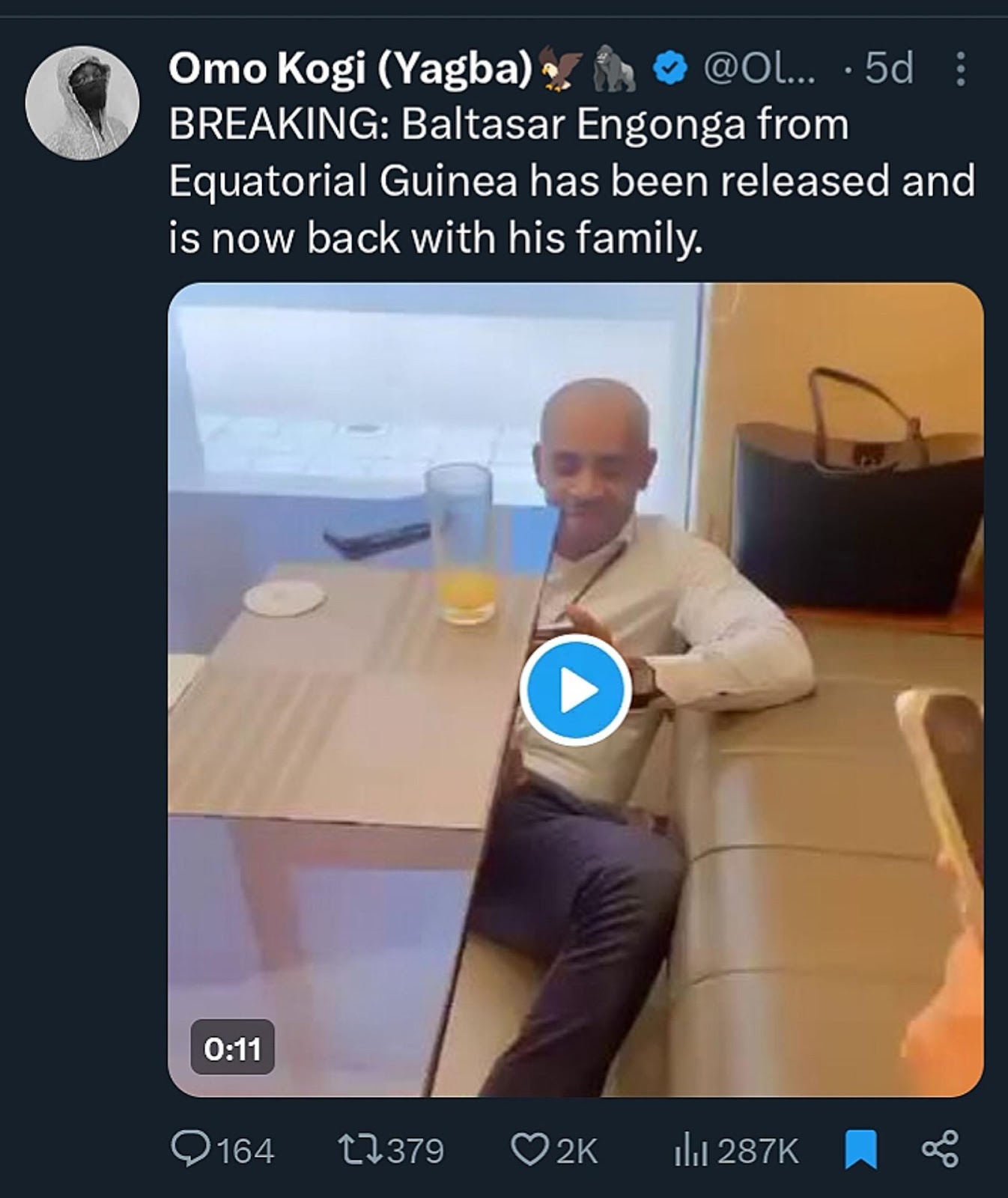
In that video, a man alleged to be Engonga was seen conversing and relaxing in his sitting room while a woman’s voice could be heard in the background. This sparked a social media firestorm; many were relieved to see him return, while others questioned Africa’s justice system.
Three days later (November 24), an influencer shared another photo of Engonga with a lady on the beach, captioned “Balthazar Ebang Engonga first weekend as a free man.He didn’t waste any time, Guess what happens next?”. This generated 11.8 million engagements on X, making the speculation more credible in the eyes of netizens.
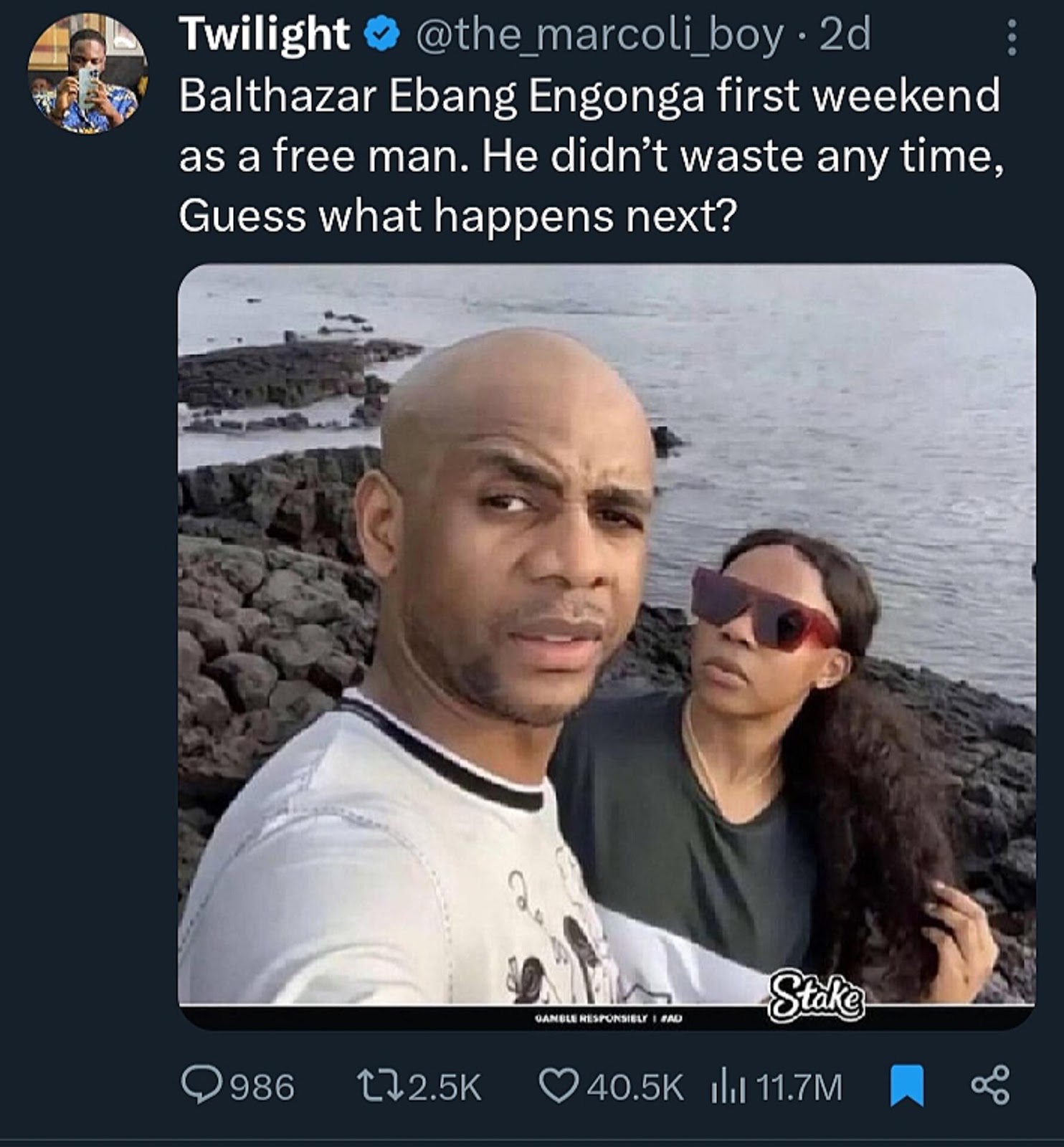
ARRESTED FOR CORRUPTION, NOT FOR SEX TAPES
At the time of his arrest, Baltasar Ebang Engonga was still Director General of National Financial Investigation Agency, where he worked to combat crimes such as money laundering.
According to a BBC report, he was arrested on October 25 after a large sum of money was traced into his secret accounts. Mr Engonga was then taken to the infamous Black Beach prison in Malabo, where it is claimed that government opponents are subjected to harsh treatment.
Days after the Security Agency retrieved Egonga’s phones and computers, his intimate videos with prominent women in the country began to flood social media, sparking controversy beyond Africa. This resulted in his immediate suspension from office while in a cell, on November 7.
NO EVIDENCE OF HIS RELEASE, DEEP FAKE VIDEO FOUND
To verify these claims, this Fact-checker conducted extensive research on the alleged video and picture claiming of Egonga’s freedom from prison through resources and credible sources. The following are our findings:
For the video:
Using Google Reverse Image, this Fact-checker found that the alleged video appeared on the internet between November 21 and 22 through various influencers’ social media accounts, making it difficult to trace the original source.
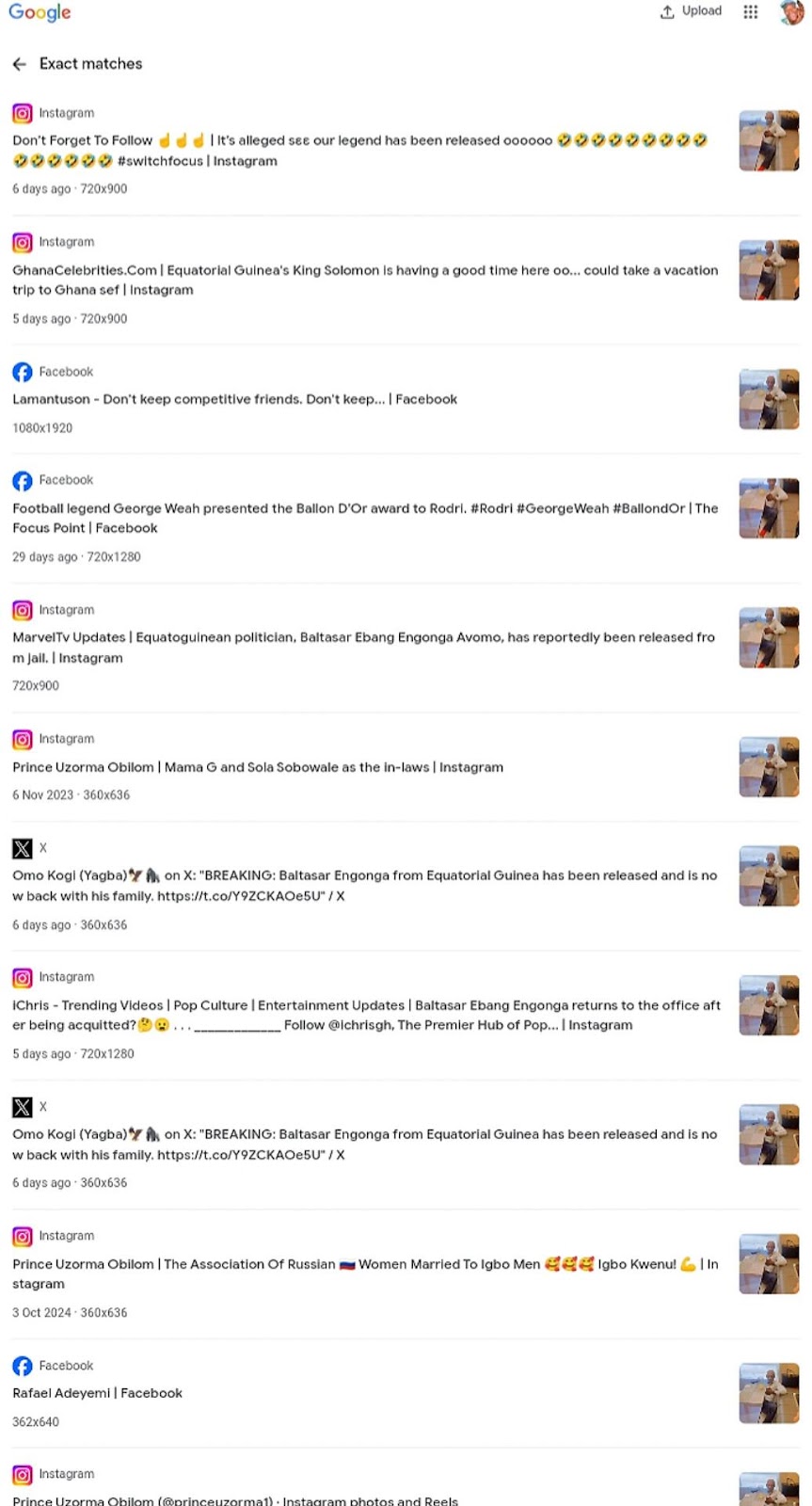
In an attempt to identify and detect Al-manipulated content, this fact-checker used Deepware Tool, an open source intelligence tool, and discovered that the video had been altered, displaying deepware at 81%. Hence it is fake.
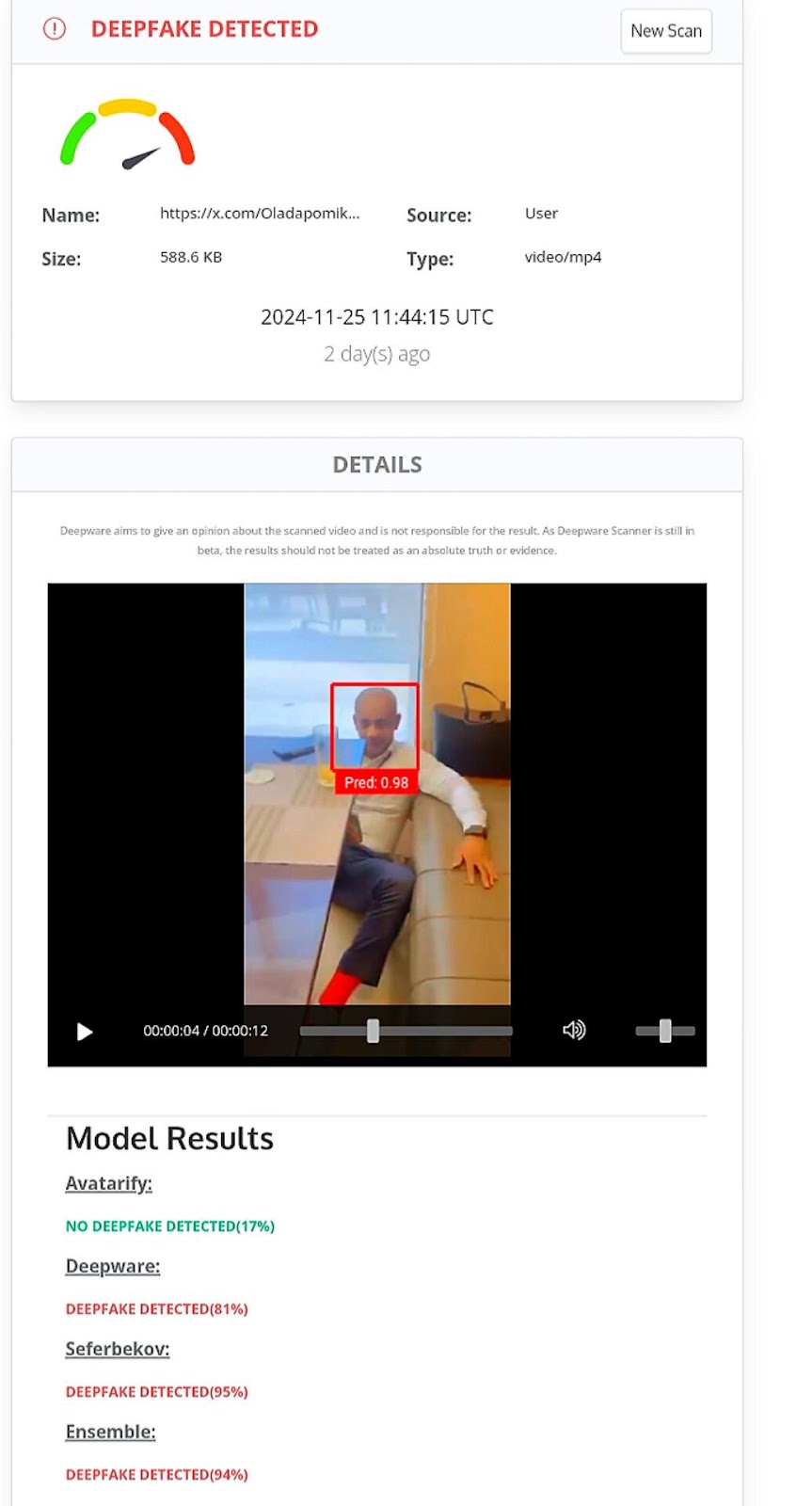
Concerning the image, a Google reverse image search reveals that social media influencers shared it on the same day (November 24) without trace of the original source.
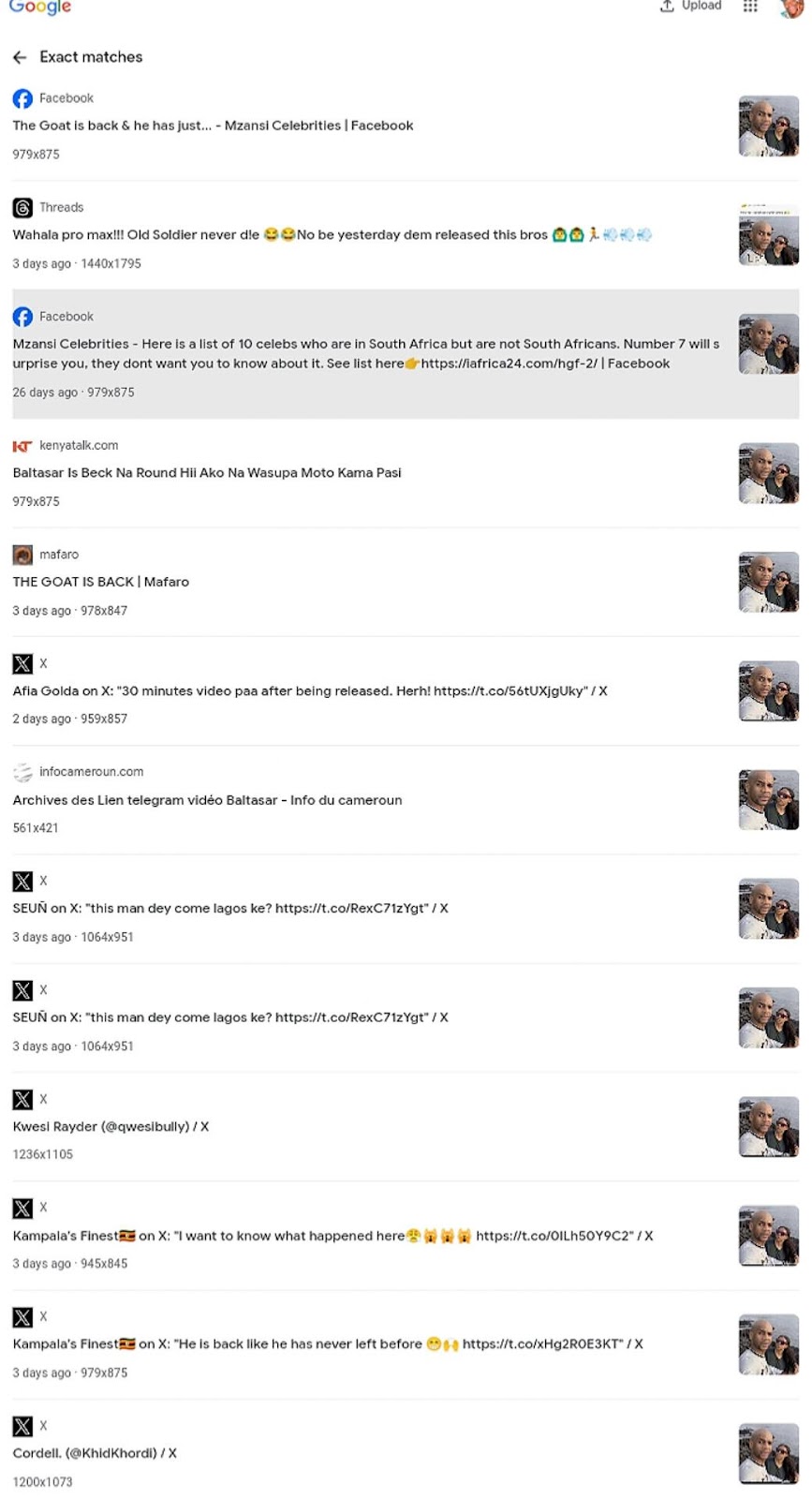
This fact-checker later ran the picture through fotoforentics, an image error detection tool, and discovered that there was nothing wrong with it. He tried another tool, forentically, which showed a 20% error on the picture. As a result, it confirms the image’s originality.
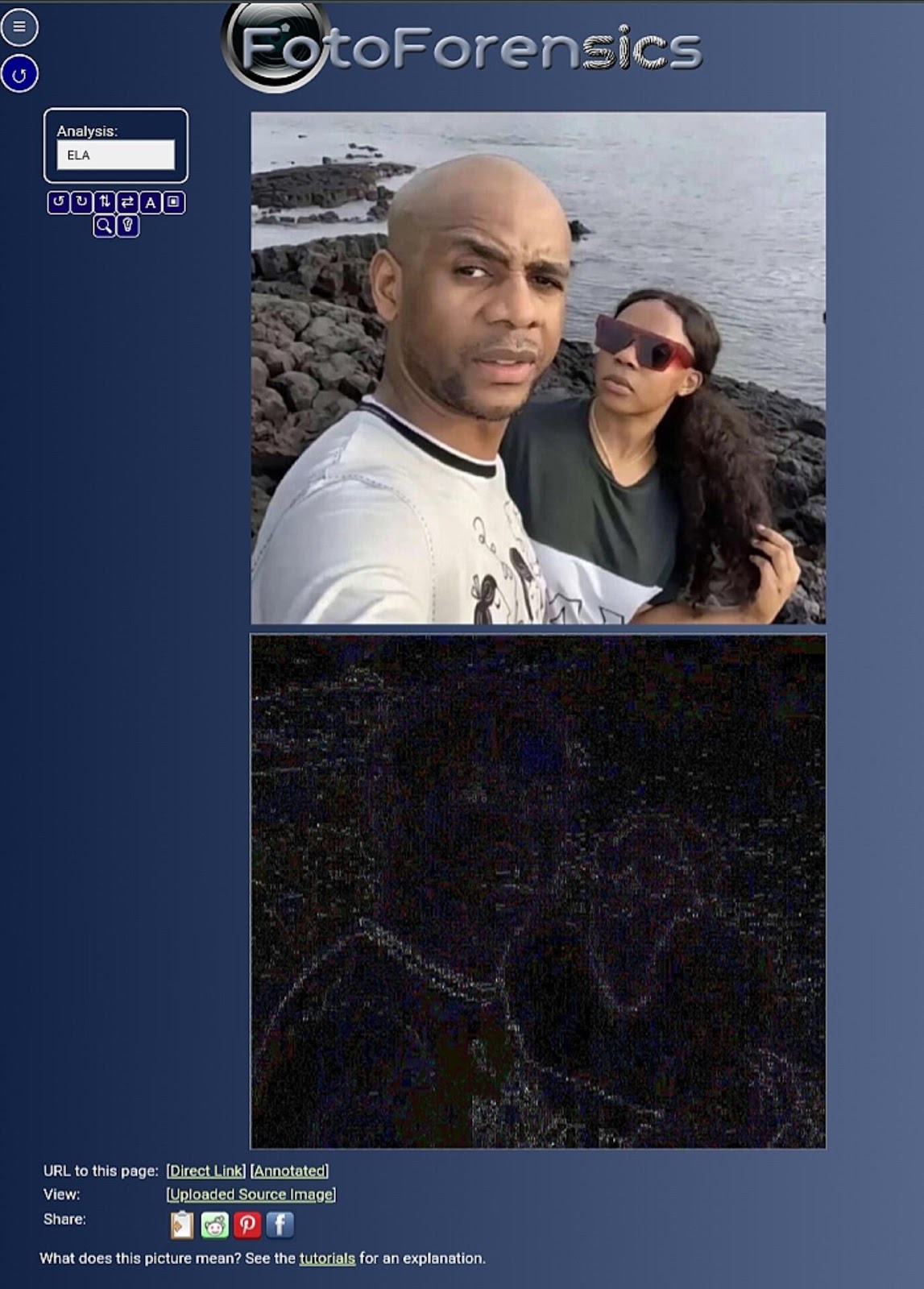
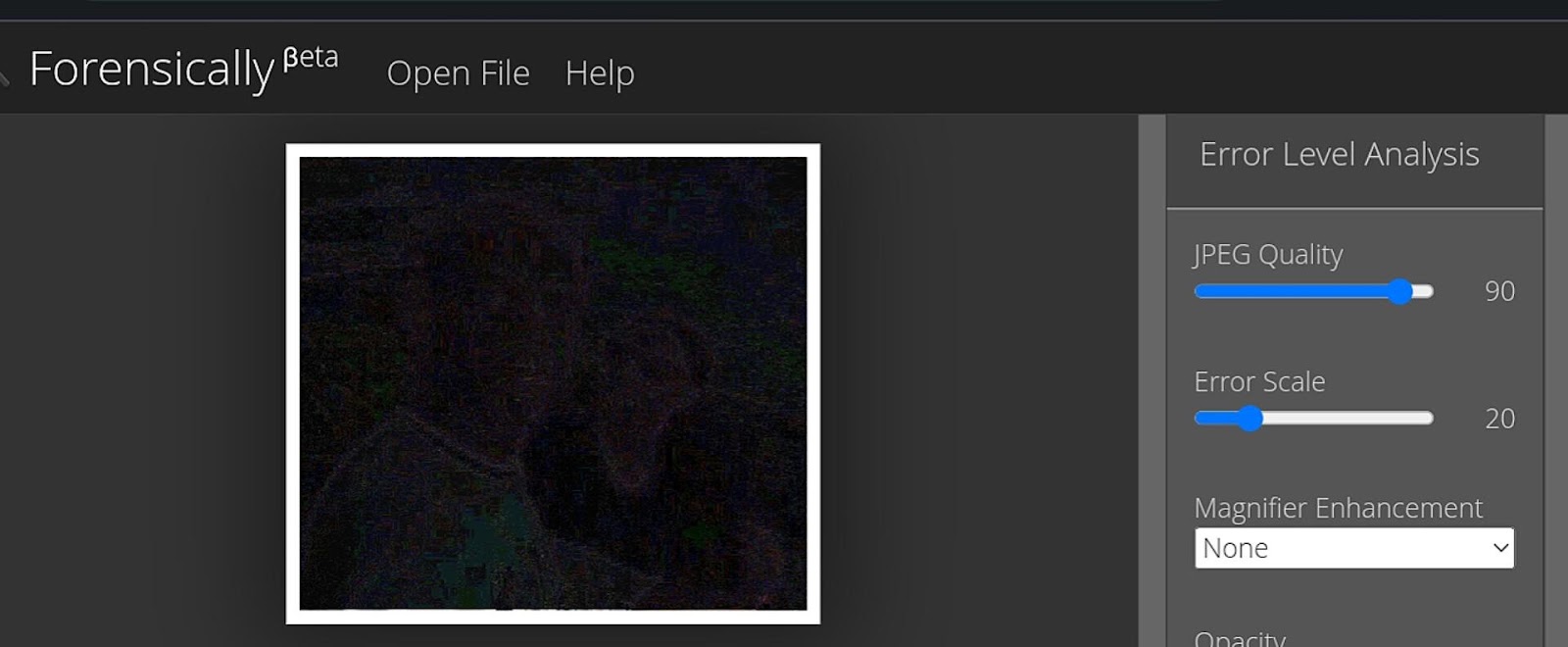
To clear up any doubts, on November 27, this Fact-checker conducted a virtual interview with Delfin Mocache Massoko, an investigative journalist and founder of Diario Rombe who is currently exiled from Equatorial Guinea due to threats to his life and press freedom.
Delfin clarified that Baltasar Ebang Engonga had not been released from prison or tried in court. He added that the viral videos were obtained by the national gendarmerie guarding Engonga’s devices, and that someone unknown is blackmailing the people in the videos in exchange for a large sum of money. Delfin, speaking about the alleged video of Engonga in a sitting room, said it was an old one that had recently surfaced on the internet.
For further clarification, Delfin recently published the fallacy narrative about baltasar engonga’s corruption and sex scandal.
CONCLUSION
With the facts presented above, it is clear that social media influencers were spreading false information about Baltasar Engonga to mislead people and instil fear for personal gain.

